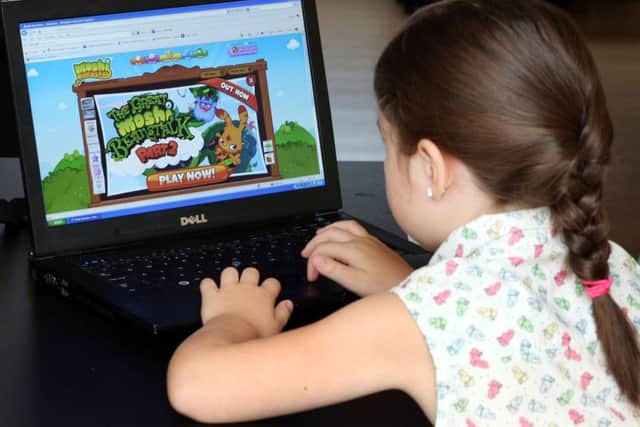Why Facebook and Twitter must help police fight online hatred - Liam Byrne


God knows what sacrifices we have made over the last 50 or 60 years in the defence of democracy and free speech. We live in a country where some of our neighbours are hounded out of those privileges; we have to look at ourselves and conclude that we have so much more to do.
The policing environment for online hate is failing comprehensively. There is a very old concept in policing known as keeping the Queen’s peace. Online, the Queen’s peace is simply not observed – it is simply inconceivable ever to expect a police force to police this waterfront.
Advertisement
Hide AdAdvertisement
Hide AdSome time ago, people started producing figures of what goes up online every 60 seconds. As far back as 2017, the statistics were half a million tweets, 500 hours of video and 3.3 million Facebook posts. There is no way any police force on earth will police that waterfront and keep it safe and sound to protect and preserve the Queen’s peace throughout that space. Therefore, we have to put the onus back on some of the most profitable companies on earth.


In the last reported quarter, Facebook made something like £5bn. It is one of the biggest and most valuable companies on earth, yet it gets away with supporting – not orchestrating or colluding in, but certainly enabling – the abuse of fellow citizens of our society. The time has to come when we say to the wealthiest titans on earth “Enough is enough”.
Four significant changes need to happen to the online regulatory and policing environment. I think the Government has accepted the first: there needs to be a duty of care on social media companies.
The concept of duty of care is quite well established in law. Its legal tradition goes back to the early 1970s and it is tried and tested. If I went out and built a stadium and filled it full of people, there would be all kinds of rules and regulations that would ensure that I kept those people safe.
Advertisement
Hide AdAdvertisement
Hide AdIf I went out and built a similar online stadium and filled it full with all kinds of nonsense, no such regulations would bite on me.
That has to change. We have to ask these firms to identify the harms their services and products might cause and to do something about them, and we have to hold them to account for that.
The second idea is much tighter regulation of hate speech like the approach taken by the ministry of justice in Germany. Its Network Enforcement Act – or NetzDG law for short – has created a much more effective policing environment for tackling online hate speech, and it has done so in a way that keeps Germany well within its Council of Europe obligations on protecting free speech. It is time we looked at that because it is beginning to work.
I am told that something like one in seven Facebook moderators now works in Germany. Google, Twitter, Facebook and YouTube have had to take down a significant amount of hateful material.
Advertisement
Hide AdAdvertisement
Hide AdLooking across the Council of Europe space at the countries that are signatories to the European convention on human rights, which includes the protection of free speech, it appears that Germany is leading the way in creating an effective policing environment to tackle hate speech. Surely, it is time for the Government to look at that a little harder?
The third thing we need is a different kind of regulator. Again, I think the Government has accepted that. There are something like nine different regulators with some kind of regulatory, policing or overwatch powers in the internet space. That is too many. We are not saying they need to be boiled down to one, but that number needs to be closer to one than to nine. That means we have to overhaul the regulators, so we are looking forward to seeing a new Bill whenever we see the Queen’s Speech and a new legislative programme.
The final change we need, which is more long term, is a bill of digital rights for the 21st century. The reality is that the online world is going to be regulated, re-regulated and re-regulated again over the course of this century. It is therefore important that we set down some first principles that provide something of a north star to guide us and give companies a bit more predictability as we navigate the changes ahead.
At the core of that bill of digital rights should be the right to universal digital literacy. Ultimately, as a country, we are all going to have to become more digitally literate so we can start putting back in place some of the norms and boundaries of the civilised discourse that once was the hallmark of democracy in this country.
Liam Byrne is a Labour MP and ex-Cabinet minister. He spoke in a Commons debate on online abuse – this is an edited version.